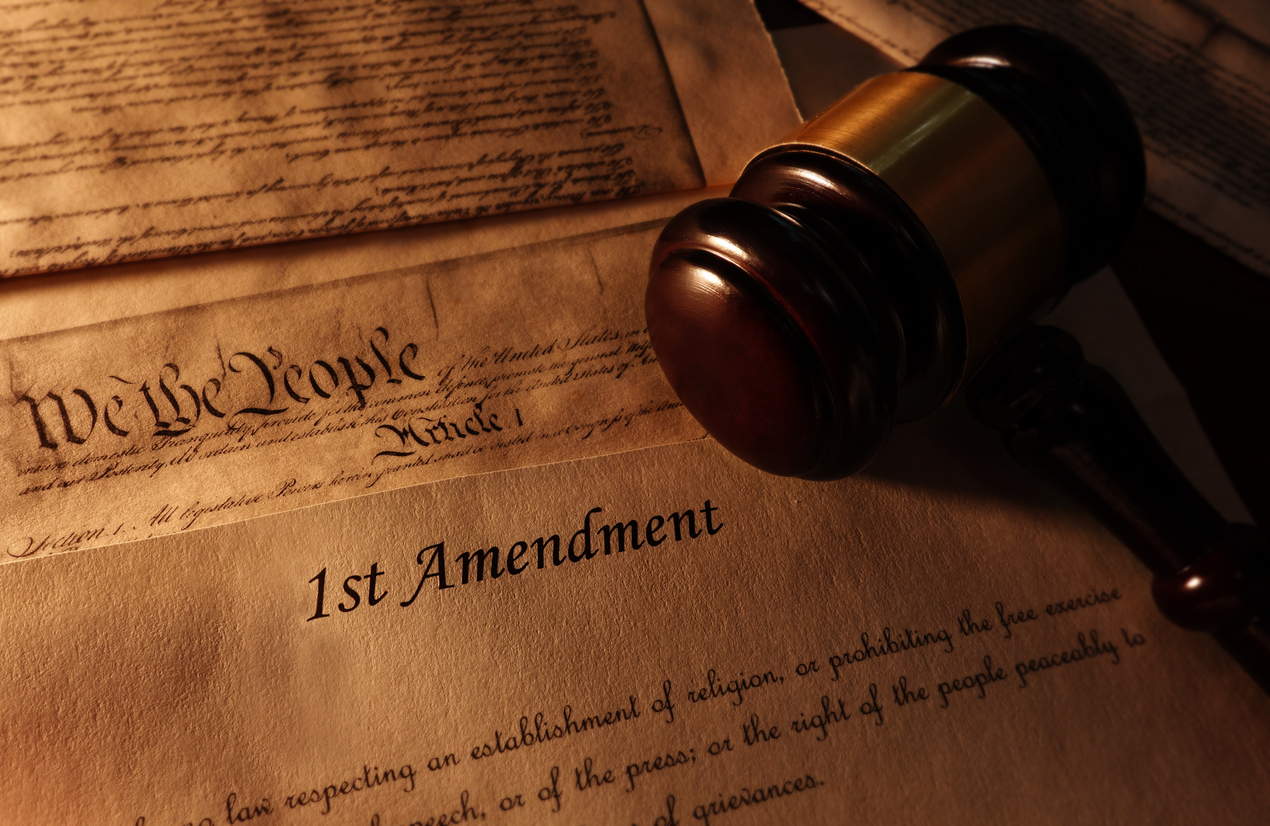Key Takeaways for Nonprofits in Billard v. Charlotte Catholic High School
By Napa Legal Staff
A few weeks ago, the Fourth Circuit decided in Billard v. Charlotte Cath. High Sch.1 that it was permissible under Title VII’s ministerial exception for Charlotte Catholic High School to refuse to continue the employment of a substitute teacher who was openly living in a same-sex relationship. This blog post provides a summary of the case, as well as a few takeaways for nonprofits.
The court began by reciting at length the role faith plays at CCHS: The Catholic diocese views “its schools as an integral part of its religious mission to ‘spread the Gospel of Jesus Christ,’” the court said. And “canon law requires Catholic bishops to establish Catholic schools.” Catholic faith “infuses daily life at the school,” the community is “centered in the Roman Catholic faith,” all persons must “model and integrate the teachings of Jesus in all areas of conduct,” and everyone should grow spiritually and morally. “The soul of education is the education of the soul” at CCHS.
“CCHS’s teachers play a critical role in pursuing those missions.” Teachers are in charge of the daily class prayers. They accompany students to and supervise them during Mass. The teachers are all evaluated “on the ‘catholicity’ of their classroom environment,” their “agreeability] with Catholic thought,” their contributions “to an atmosphere of faith commitment,” “and their aptitude in ‘implementing the diocesan and school’s mission statements.” Finally, CCHS made it clear that the importance it attached to faith extended outside the workplace. All employees, it said, must not participate in or advocate “for conduct contrary to” the Church’s teachings.
But CCHS employee, teacher Lonnie Billard, did just that when he posted on Facebook that he was “engaged to be married” to his longtime same-sex partner. Billard had taught nonreligious subjects like English and drama at CCHS for several years. Having seen this social media post, CCHS chose to not rehire Billard, concluding that his “plans” “violated the Diocese’s policy against engaging in conduct contrary to the moral teachings of the Catholic faith.” Id.
Billard sued CCHS under Title VII. CCHS raised four defenses: Title VII’s religious exemption2; Religious Freedom Restoration Act protections; the “church autonomy” doctrine; and freedom of association “to refrain from associating with employees whose presence would impede the transmission of their messages.” The lower court rejected these defenses—and rejected the ministerial exception defense as well, even though it had not been raised—and granted summary judgment in Billard’s favor.
The Fourth Circuit reversed, however, holding that Billard’s teaching position fell “under the ministerial exception to Title VII” because he “played a vital role as a messenger of CCHS's faith.” The court’s high-level explanation of its analysis discussed the function of Billard’s position and “its importance to CCHS’s ‘spiritual and pastoral mission.’” After summarizing the Supreme Court cases Hosanna-Tabor and Our Lady of Guadalupe, the court applied them to Billard. This application was not a “checklist,” the court explained. Considering “all relevant circumstances,” the facts in Billard “mirror[ed]” in “most” ways the students and teachers in those cases. Therefore, the ministerial exception applies. The court showed this by highlighting some key facts, including:
· “CCHS’s educational mission is driven by the Catholic faith.”
· Teachers must “model faith” in teaching “all subjects.” (emphasis added).
· Billard’s evaluations included how he was integrating faith in his classes.
· “Billard was expected to,” and did, lead the class in prayer and attend Mass.
The court acknowledged that Billard didn’t personally teach religious subjects or provide religious instruction. But weighed against the other facts, this wasn’t “dispositive.” Instead, the single most important factor was that “faith infused” all CCHS’s classes: “Billard may have been teaching Romeo and Juliet, but he was doing so after consultation with religious teachers to ensure that he was teaching through a faith-based lens.” CCHS considered this “vital to its religious mission.” Our law recognizes that “seemingly secular tasks like the teaching of” seemingly nonreligious subjects “may be so imbued with religious significance that they implicate the ministerial exception.” Thus, the “exception protects religious institutions in their dealings with individuals who perform tasks so central to their religious missions—even if the tasks themselves do not advertise their religious nature.” On top of all that, Billard was a teacher—a role different from other school employees given their special role in instructing on and training in the faith.
Billard offers at least two lessons for the faith-based nonprofit.
First, the ministerial exception still appears to be a strong defense in employment discrimination litigation. Nonprofits would therefore be wise to structure their employee expectations, policies, and hiring with the ministerial exception in mind. After all, not only did the court apply the ministerial exception in favor of a Catholic school, but it did so despite CCHS explicitly attempting to waive that exception during the trial process.
The court reasoned that the ministerial exception “implicate[s] important institutional interests of the court,” like separation of powers. The exception is rooted in limits on judicial authority, confining “the state and its civil courts to their proper roles and “protect[ing] the church” from federal and state interference “in religious leadership disputes.” Put differently, the doctrine is based “in constitutional structure.” Indeed, the court repeatedly extolled the ministerial exception’s “importance in partitioning civil authorities from religious ones.” The ministerial exception “plays an important role in limiting courts to their proper sphere.” A party in a case like this cannot waive the ministerial exception because, if an employee is a minister, the court has no authority to make decisions about the minister’s role.
It is worth noting that the judge who wrote the majority opinion was appointed by President Obama. This offers some hope that even liberal judges and lawmakers view the ministerial exception as an important piece of the ongoing attempt at a civil rights “compromise” among those who disagree about fundamental moral questions regarding sexuality and the human person. The court said it was willing to consider the waived ministerial exception argument because it was “narrowly tailored to Billard’s case and circumstances” compared to the other defenses offered. The court explicitly said it was avoiding any wide-ranging decision here. It wanted, instead, to rely on the “well-settled” ministerial exception doctrine, not CCHS’s other “novel and complex” defenses. This is a hopeful sign that the ministerial exception remains a vital and viable tool for faith-based nonprofits facing such employment issues.
Second, it appears the easiest way for a nonprofit to use the ministerial exception is to be as authentically religious as possible—that is, to take seriously the totalizing claims of the faith and articulate and implement a mission that infuses the faith into every aspect of its organization.
Remember that the court said these ministerial exception issues are “highly fact-intensive,” “turning on consideration of a ‘variety of factors’ and ‘all relevant circumstances’ rather than a bright-line rule or even rigid formula.” In other words, labels alone won’t cut it. When courts confront a ministerial exception argument, they will turn over every leaf and rock to confirm that the function and importance of that particular role to the organization’s spiritual mission are genuine. Consider all the facts the court relied on here (listed above)—most importantly, the evidence that all subjects at CCHS were infused with Catholic faith, even the non-religion classes.
So under Billard’s approach, a nonprofit has the best chance of using the ministerial exception when the organization shows—in both word and deed—that every aspect of its mission is authentically driven by the faith, when its community life is centered around the faith, and when it explicitly holds employees to the moral standards of the faith. Nonprofits should also think through and be able to articulate how their various employees are furthering this faith-focused mission—especially when employees in certain roles are not doing explicitly “religious” work.
Analyzing the way an organization articulates and lives out its mission, especially with reference to its various employees, will give that organization the best chance of using the ministerial exception to succeed against a disruptive Title VII claim.
---------------------------------------------------
[1] ___ F.4th ___, 2024 WL 2034860 (4th Cir. May 9, 2024).
[2] 42 U.S.C. § 2000e-1(a).
.png)




